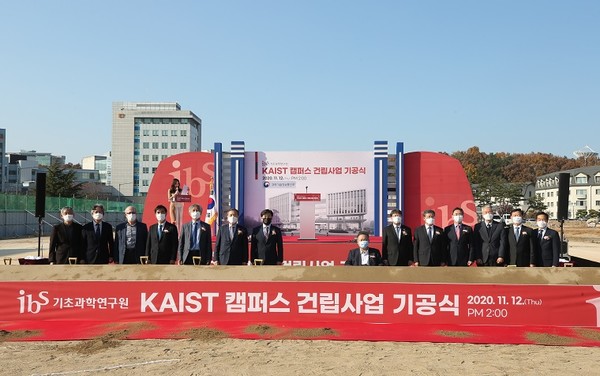A new campus of the Institute for Basic Science (IBS) is set to appear in KAIST around April 2022.

Established in November 2011, IBS is Korea’s first dedicated basic science research institute. The institute has partnered with many top scholars in Korea and globally, and it has quickly become one of the major science research centers in Korea. So far, the number of research centers has grown to 31, reflecting IBS’s active involvement in scientific research. All IBS centers already located within other KAIST buildings, such as the Synaptic Brain Dysfunctions Center (E6-3), are planned to relocate to the new IBS building.
The new building is to be built behind the National Nanofab Center (E19) and the East Track field. For safety measures, access to the East Tennis Court and parking lots in proximity has been limited since October 29. The official construction started on October 20. Out of the 19 bidding companies, HAEAHN Architecture, who also designed the IBS POSTECH Campus, was selected as the architect design firm. The actual construction will be done by Seolim Constructions.
The building is designed to be six stories high, with an additional underground level. It will be approximately 35 meters tall and occupy 17,000 square meters of ground space. The seven floors in total will provide a total of 26,200 square meters of usable space for both researchers and students.
As IBS aims to be interdisciplinary, the building design includes a “Convergence Platform” to encourage students to actively socialize with each other, for researchers to share knowledge, and for everyone to develop an interdisciplinary knowledge of science.
The news of IBS opening a new building within the KAIST campus has excited a lot of students who are interested in having experience in conducting real academic research. IBS has continuously provided valuable internship opportunities to many KAIST students, and having a campus in KAIST will undoubtedly provide even more chances for aspiring science researchers.

